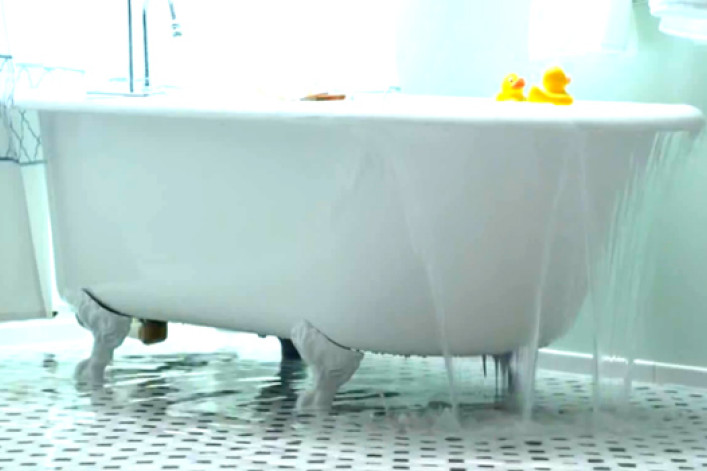My house-sitter flooded my rental. Who should cover the damage?

Q. My friend was house-sitting and didn't turn the bathtub faucet off all the way before she left. It flooded my apartment, causing thousands of dollars in damage to the apartment, my stuff and even the apartment below me. Who's responsible to pay for it?
A. Take a look in the mirror. That’s the person who’s most likely on the hook for the costs, our experts say.
"Depending on the terms of [your] lease, [you] could be held responsible for the damage caused to [your] apartment and to the other apartments in the building,” says real estate attorney Jeffrey Reich of Wolf Haldenstein Adler Freeman & Herz.
If you’d hired a professional house-sitting service, you’d have a better chance of getting them to cover the damage. But not so with a friend looking after your place for free. “The level of care owed by the house-sitter would depend on whether the house-sitting services were being paid for or being provided gratuitously,” Reich says.
And your landlord? They might rely on their own insurance policy to repair some structural issues, “but it would not cover your property, your liability exposure or the property in the apartment below,” says apartment insurance broker Jeff Schneider of Gotham Brokerage. “To the extent the landlord has to repair walls and floors, he or she will look to you for reimbursement.”
Your own renters' insurance, on the other hand, should cover everything...unless your friend was living in your apartment for many weeks or months, which might void your policy due to lack of residency.
“In that case, the damage would only be covered by insurance if your ‘sitter’ has taken out renter’s insurance for your location,” Schneider says. “If this is a weekend or a week or two situation, your own insurance policy will probably cover the damage to your property and the damage to the apartment below.”
One other thing to be aware of as you wring yourself out: “When items get wet—especially things like plaster-board walls, particle board and flooring—they need to be dried out thoroughly,” notes pest control expert Gil Bloom of Standard Pest Management. “This frequently requires a quality dehumidifier which pulls out moisture you don't even realize is there. Unfortunately, when events like floods or fires occur, moisture is left which can develop even minute amounts of fungus, which can result in an insect infestation of fungus beetles or other insects.”
Related posts:
Got running water? Then you need apartment insurance (sponsored)
Everything you need to know about renter's insurance
My apartment building flooded during Sandy. Should I still be worried about mold?
Trouble at home? Get your NYC apartment-dweller questions answered by an expert! Send us your questions.
See all Ask an Expert.
























